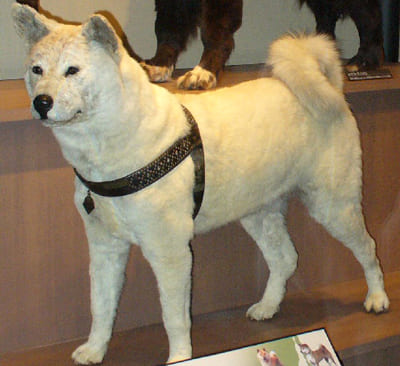Explore the meaning, forms, synonyms, antonyms, and cultural significance of the word ‘dog’ in this comprehensive 1000-word essay. Learn about the deep bond between humans and their loyal companions, along with its various linguistic uses.
Dog: Meaning, Synonyms, Antonyms, Facts
Dog: Meaning
The word “dog” refers to a domesticated carnivorous mammal that typically has a long snout, an acute sense of smell, non-retractable claws, and a barking, howling, or whining voice. Dogs are commonly kept as pets, used in hunting, or trained to work for people.
Use of the Word ‘Dog’ in a Sentence
Noun: “The dog wagged its tail happily when it saw its owner.”
Verb: “They dogged the suspect for hours until they finally caught him.”
Forms of the Word ‘Dog’
Noun: Dog (a domestic animal)
Verb: Dog (to follow or pursue someone closely and persistently)
Adjective: Dogged (having or showing tenacity and grim persistence)
Adverb: Doggedly (in a manner that shows tenacity and persistence)
Noun (Related): Doggedness (the quality of being tenacious and determined)
Synonyms of the Word ‘Dog’
Canine
Hound
Mutt
Pooch
Pup
Antonyms of the Word ‘Dog’
Cat (though not a direct antonym, it is often used in contrast)
Owner (as a dog is a pet, the opposite role would be the owner)
You May Like:
Exhaustive Essay on the Word ‘Dog’
Introduction
The word “dog” is one of the most commonly used words in the English language. It refers to an animal that has been a close companion to humans for thousands of years. The relationship between humans and dogs is unique and multifaceted, encompassing companionship, loyalty, and service. This essay will explore the meaning of the word “dog,” its different forms and uses, and its significance in human society.
The Meaning of ‘Dog’
At its most basic level, a dog is a four-legged mammal known for its loyalty and companionship. Dogs belong to the species *Canis lupus familiaris*, a subspecies of the wolf. Over centuries, humans have bred dogs for various purposes, leading to the creation of numerous breeds with different characteristics, temperaments, and skills. Some dogs are small and suited for life as lapdogs, while others are large and have been bred to guard, hunt, or work.
The term “dog” is also used metaphorically to describe certain human behaviors. For example, when someone is said to “dog” another person, it means they are following them closely and persistently, often with a sense of stubborn determination.
Different Forms of the Word ‘Dog’
The word “dog” can be used in various forms, each with a different meaning and application. As a noun, it refers to the animal itself. As a verb, it can mean to pursue or follow someone closely, often in a relentless manner. For example, “The journalist dogged the politician, seeking answers to pressing questions.”
The adjective form, “dogged,” is used to describe someone who is tenacious and determined, often in the face of adversity. For instance, “She showed a dogged determination to complete her studies despite many challenges.”
The adverb “doggedly” and the noun “doggedness” are derived from the adjective “dogged” and describe the manner or quality of persistence and determination.
The Role of Dogs in Human Society
Dogs have played a significant role in human society for thousands of years. From their early days as hunting partners to their modern roles as pets, service animals, and even emotional support companions, dogs have been integral to human life. Their ability to understand and respond to human emotions makes them unique among animals. Dogs are often referred to as “man’s best friend” due to their loyalty, affection, and protective nature.
In many cultures, dogs are revered and treated as family members. They are celebrated in literature, art, and folklore. In some societies, dogs are also used in various working roles, such as in law enforcement, where they help track down criminals or find drugs. Guide dogs assist people with visual impairments, while therapy dogs provide comfort and companionship to those in hospitals or nursing homes.
Synonyms and Antonyms
The word “dog” has several synonyms that can be used interchangeably, depending on the context. Words like “canine” and “hound” are often used in more formal or specific contexts, while “pooch” and “pup” are more informal and affectionate terms.
On the other hand, while there isn’t a direct antonym for “dog” as a noun, the word “cat” is often used in contrast to “dog” due to the common comparison between these two popular pets. In a metaphorical sense, the antonym could be “owner,” as the owner is in a position of care and authority over the dog.
Dogs as Symbols
In literature and popular culture, dogs often symbolize loyalty, protection, and unconditional love. They are frequently depicted as devoted companions who stand by their owners through thick and thin. Conversely, in some contexts, the term “dog” can be used negatively to describe someone who is considered inferior or contemptible. However, this usage is less common in modern language and is generally avoided due to its pejorative connotation.
Cultural Significance
Dogs hold different cultural significance across various societies. In Western cultures, dogs are often seen as symbols of loyalty and fidelity. In contrast, in some Eastern cultures, dogs are viewed with a mix of reverence and caution, depending on the local beliefs and customs. For example, in Islamic culture, while dogs are respected for their loyalty, they are also considered ritually impure, and their role as pets is sometimes limited. However, working dogs, such as those used for hunting or guarding, are valued.
In many societies, the bond between humans and dogs is celebrated through various rituals and customs. Dogs are often included in family celebrations, and in some cultures, special ceremonies are held to honor them.
The Human-Dog Bond
The bond between humans and dogs is one of the most profound and enduring relationships in the animal kingdom. This relationship is built on mutual respect, trust, and affection. Dogs have an incredible ability to read human emotions and respond accordingly, providing comfort, companionship, and even protection. This deep connection has led to dogs being used in various therapeutic settings, where their presence can help reduce stress, anxiety, and depression.
The companionship that dogs provide is particularly important for people who live alone or those who are going through difficult times. The unconditional love and loyalty that dogs offer can help people feel less lonely and more connected.
Conclusion
In conclusion, the word “dog” encompasses much more than just an animal. It represents a deep bond between humans and their loyal companions. Dogs have been a part of human life for thousands of years, offering companionship, protection, and service. Their various forms, including the noun, verb, and adjective, reflect the different roles they play in our lives. Whether as pets, working animals, or symbols of loyalty and determination, dogs hold a special place in human society.
Facts About Dog
Here are some brief facts about dogs:
- Species: Dogs belong to the species Canis lupus familiaris, a subspecies of the gray wolf.
- Domestication: Dogs were domesticated around 15,000 to 40,000 years ago, making them one of the first animals to be domesticated by humans.
- Breeds: There are over 340 recognized dog breeds worldwide, each with unique characteristics and traits.
- Sense of Smell: Dogs have an extraordinary sense of smell, about 10,000 to 100,000 times more acute than humans.
- Communication: Dogs communicate through vocalizations, body language, and scent marking. They bark, growl, whine, and use various postures to express themselves.
- Loyalty: Dogs are known for their loyalty and are often referred to as “man’s best friend” because of their close bond with humans.
- Lifespan: The average lifespan of a dog varies by breed but typically ranges from 10 to 15 years. Smaller breeds tend to live longer than larger ones.
- Intelligence: Dogs are highly intelligent and can learn commands, tricks, and even tasks. The Border Collie is often considered the most intelligent dog breed.
- Roles: Dogs serve in various roles, including as pets, working animals (such as police dogs and service dogs), hunting companions, and therapy animals.
- Diet: Dogs are omnivores, meaning they eat a diet that includes both meat and plant-based foods, although they primarily require animal protein.
These facts highlight the remarkable qualities of dogs and their special relationship with humans.











